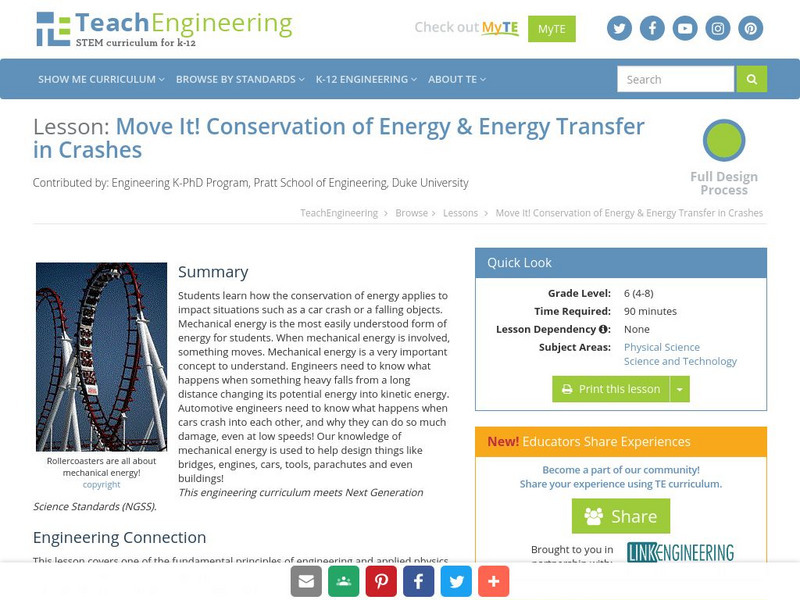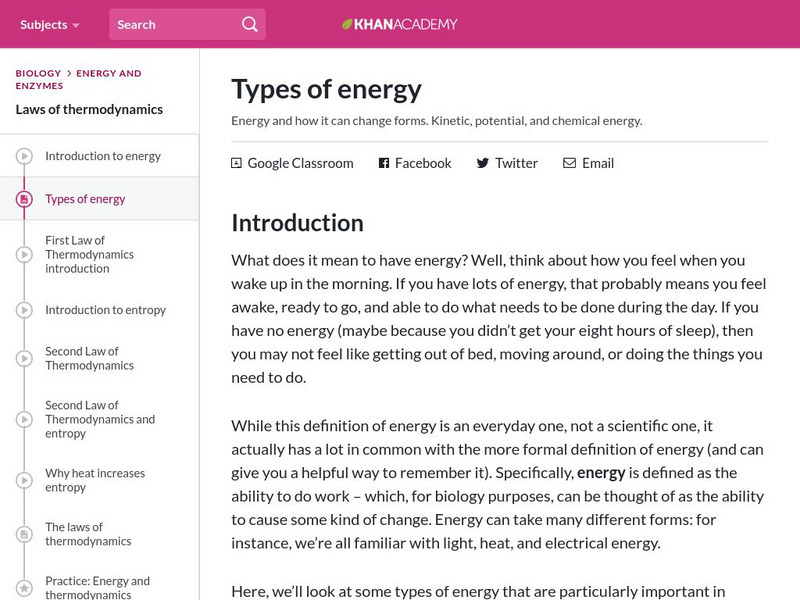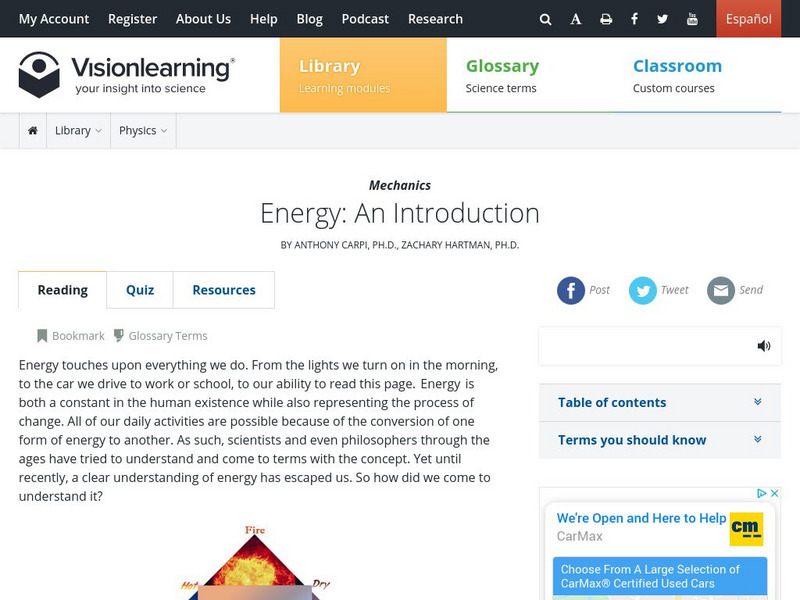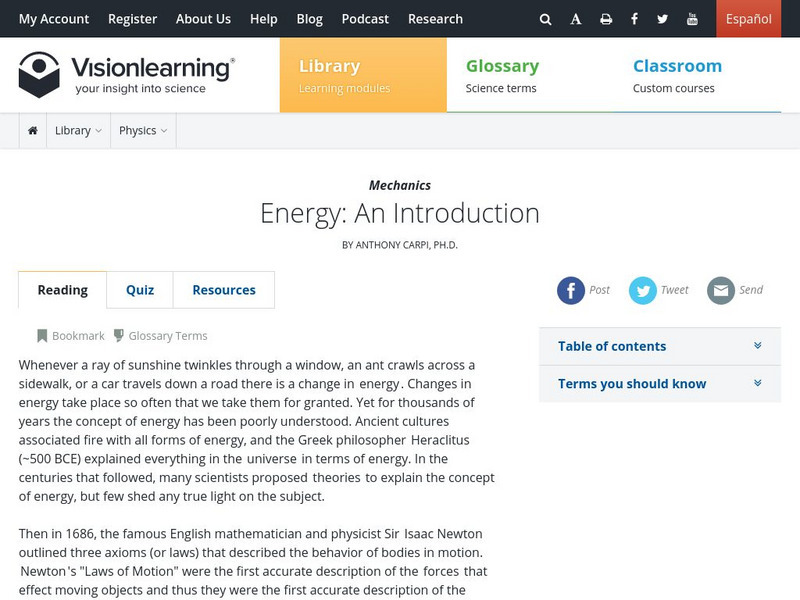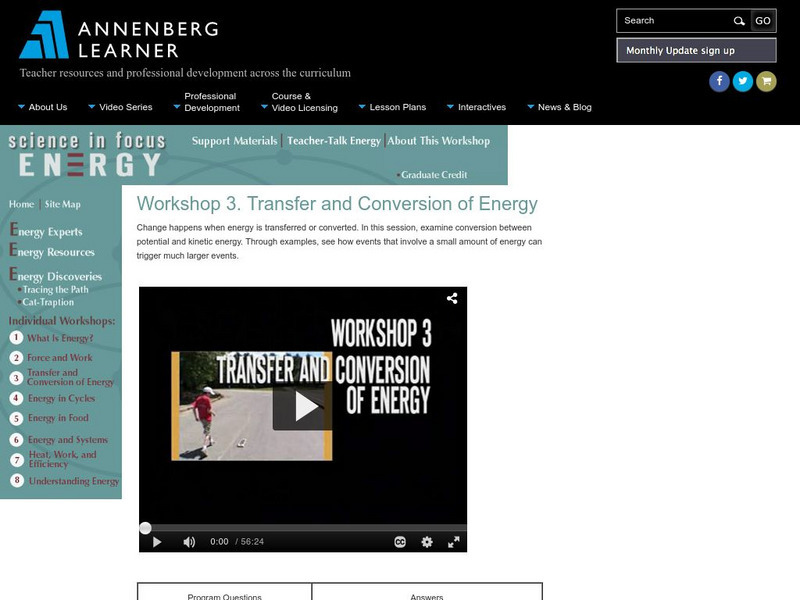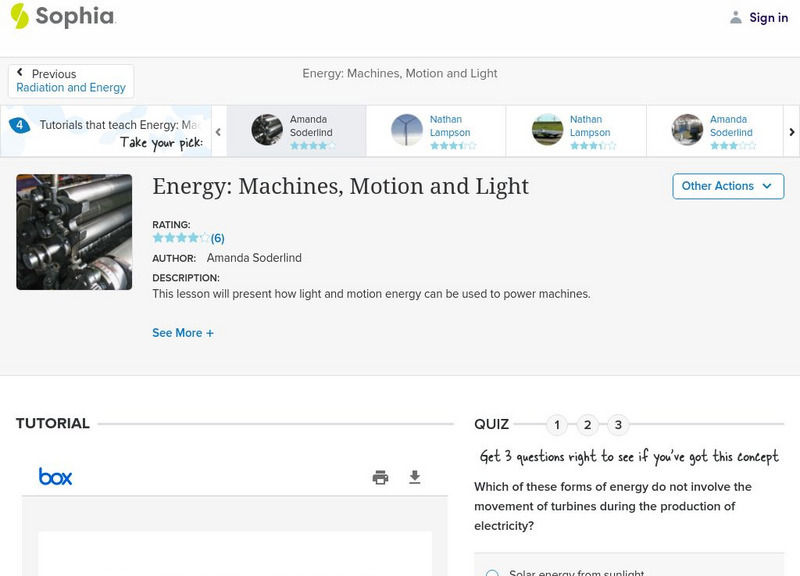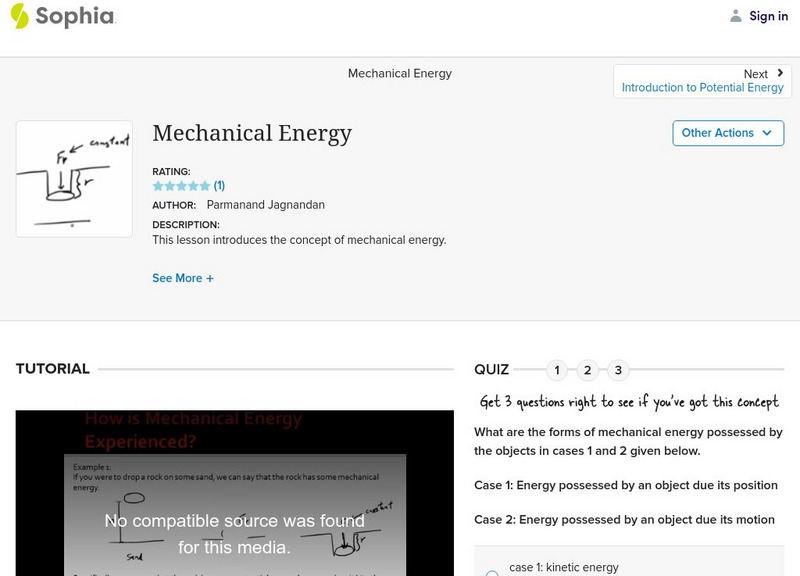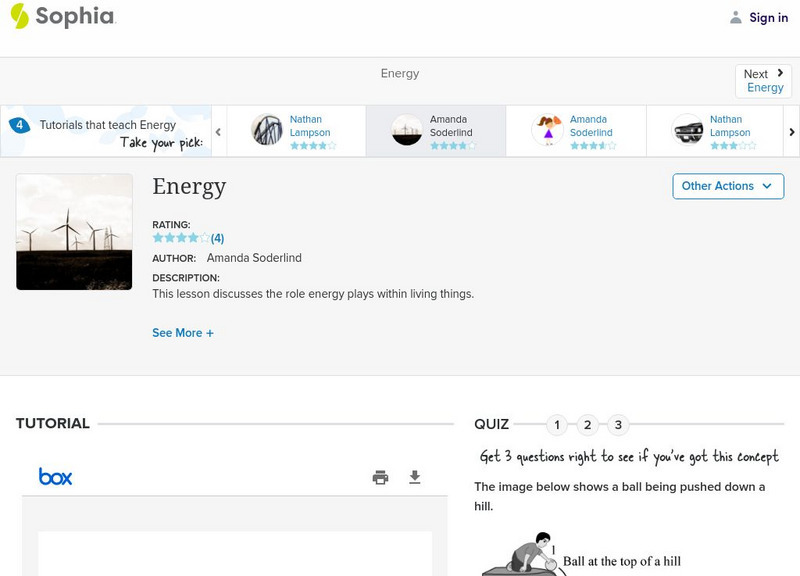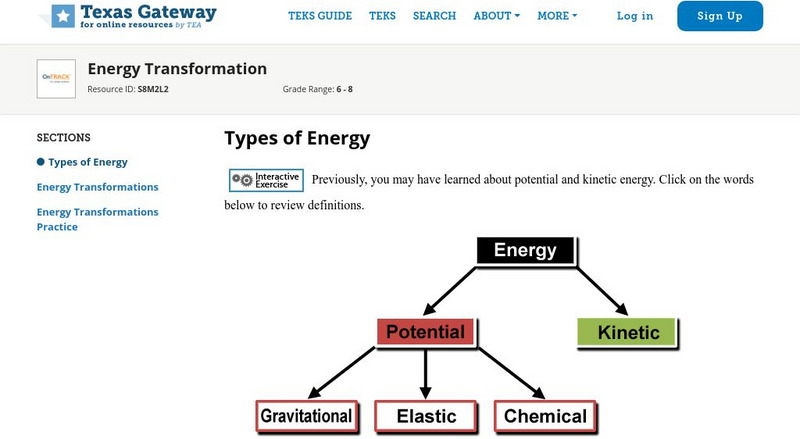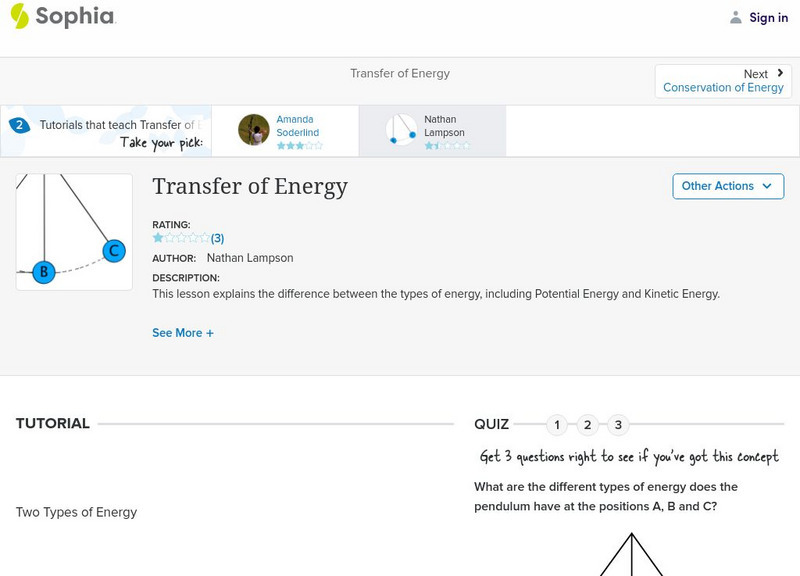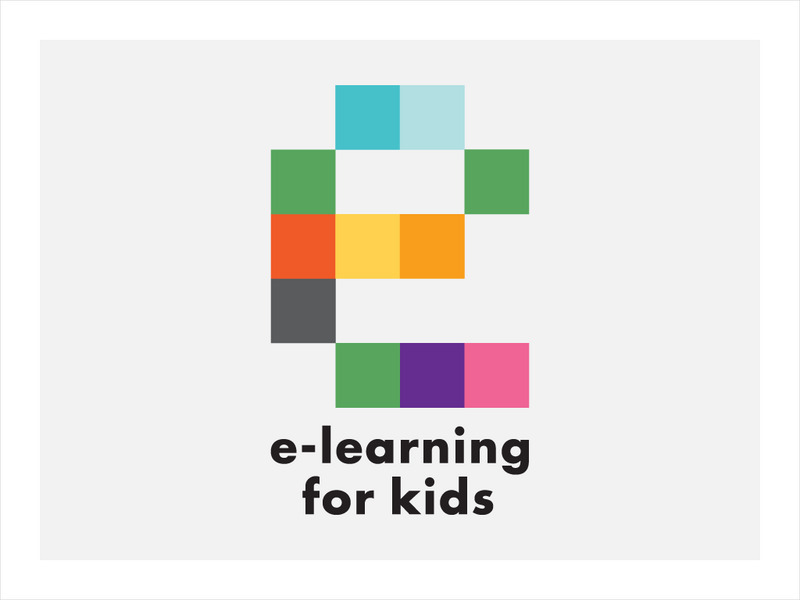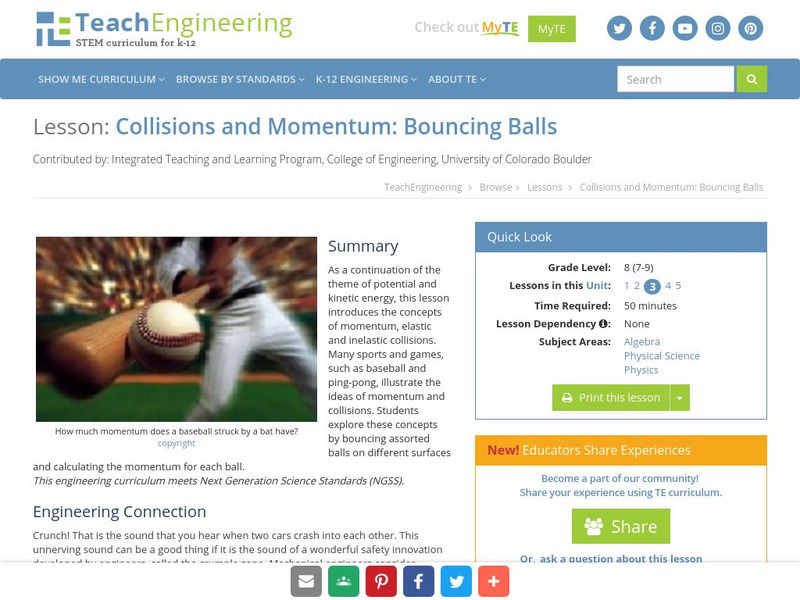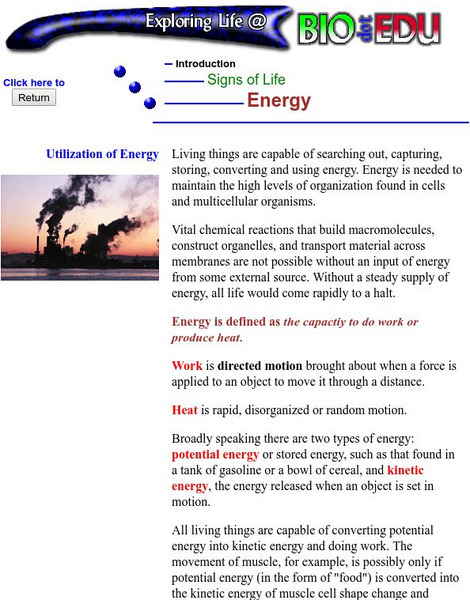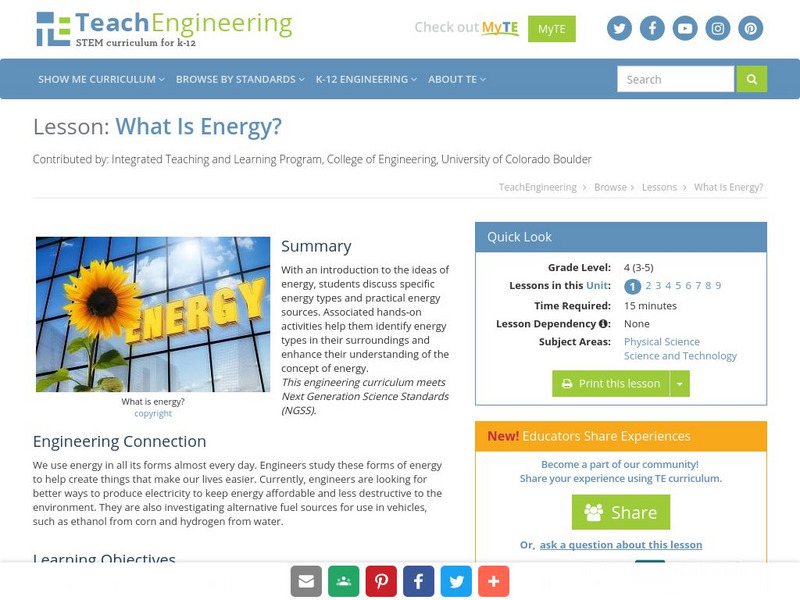Physics Classroom
The Physics Classroom: Work and Energy: Energy Transformation on Roller Coasters
Using a roller coaster as an example, the transformation of mechanical energy from the form of potential to the form of kinetic and vice versa is explained and illustrated in the animation.
TeachEngineering
Teach Engineering: Move It!
Mechanical energy is the most easily understood form of energy for students. When there is mechanical energy involved, something moves. Mechanical energy is a very important concept to understand. Engineers need to know what happens when...
Khan Academy
Khan Academy: Biology: Enzymes and Energy: Types of Energy
An article that reviews over the different types of energy: kinetic, potential, and chemical.
TeachEngineering
Teach Engineering: Falling Water
Students drop water from different heights to demonstrate the conversion of water's potential energy to kinetic energy. They see how varying the height from which water is dropped affects the splash size. They follow good experiment...
Vision Learning
Visionlearning: Mechanics: Energy
Definitions of various forms of energy are presented along with a brief scientific history of energy related concepts.
Vision Learning
Visionlearning: General Science: Energy: An Introduction
Instructional module focusing on energy. Discussion includes forms of energy, conservation of energy, and the laws of thermodynamics. Site also includes an interactive practice quiz and links relating to the topic.
Annenberg Foundation
Annenberg Learner: Science in Focus: Energy: Transfer and Conversion of Energy
Change happens when energy is transferred or converted. Included with the teaching unit, is a sixty-minute video that examines the conversion between potential and kinetic energy.
Sophia Learning
Sophia: Energy: Machines, Motion and Light
An introductory lesson describing the definition of energy, and highlighting different sources of usable energy.
Sophia Learning
Sophia: Mechanical Energy
Understand when objects have mechanical energy with this video lesson. Also learn the difference between potential and kinetic energy. The video also discusses the factors that influence both potential and kinetic energy using examples....
Concord Consortium
Concord Consortium: Energy of a Pendulum
In this interactive, drag a pendulum to set its initial height and observe how height is related to potential energy. Then release the pendulum and observe the change from potential energy to kinetic energy, and ultimately to thermal...
Sophia Learning
Sophia: Energy
This tutorial explains the difference between potential and kinetic energy. It also introduces the Law of Conservation of Energy.
Lumen Learning
Lumen: Boundless Chemistry: Types of Energy
This section of a chemistry textbook reviews the different forms of energy: kinetic, potential, and chemical.
Texas Education Agency
Texas Gateway: Types of Energy
This interactive tutorial provides a brief review of the 2 types of energy and an explanation of the law of of conservation of energy.
US Energy Information Administration
U.s. Eia Energy Kids: Energy Basics
Learn about the definition of energy, the forms that it comes in, and the difference between renewable and nonrenewable sources.
University of Colorado
University of Colorado: Ph Et Interactive Simulations: Masses & Springs
Hang various mass weights on spring scales while you adjust the spring stiffness and damping in this online activity. Slow down the action, take it to another planet, or watch the amount of potential, thermal, and kinetic energy.
TeachEngineering
Teach Engineering: Energy Forms and States Demonstrations
Demonstrations explain the concepts of energy forms (sound, chemical, radiant [light], electrical, atomic [nuclear], mechanical, thermal [heat]) and states (potential, kinetic).
Georgia Department of Education
Ga Virtual Learning: Physical Science: Work and Energy
Find out about simple machines, calculate the mechanical advantage and efficiency of machines, differentiate potential and kinetic energy, and learn ways to use energy more efficiently.
Utah State Office of Education
Utah State Office of Education: Force, Energy, & Motion
A unit on energy, force, and motion presented with interactive and classroom activities. Students gain an understanding of weight, mass, potential and kinetic energy, sound, and heat with this engaging resource.
Sophia Learning
Sophia: Transfer of Energy: Lesson 2
This lesson explains the difference between the types of energy, including Potential Energy and Kinetic Energy. It is 2 of 2 in the series titled "Transfer of Energy."
E-learning for Kids
E Learning for Kids: Science: Antilles: What Are the Different Forms of Energy?
Students will learn about the different types and sources of energy, including heat and light, electrical, potential, and kinetic energy.
TeachEngineering
Teach Engineering: Collisions and Momentum: Bouncing Balls
As a continuation of the theme of potential and kinetic energy, this lesson introduces the concepts of momentum, elastic and inelastic collisions. Many sports and games, such as baseball and ping-pong, illustrate the ideas of momentum...
Energy for Sustainable Development
Esd Bulgaria: Kids & Energy: Seven Energy Principles
Outlines the seven main principles of energy.
City University of New York
Energy: Characteristics of Life
An explanation of types of energy, how living things use energy and how they can convert energy forms. This is a good, basic, start to studying this characteristic of life.
TeachEngineering
Teach Engineering: What Is Energy?
With an introduction to the ideas of energy, learners discuss specific types of energy and the practical sources of energy. Hands-on activities help them identify types of energy in their surroundings and enhance their understanding of...

